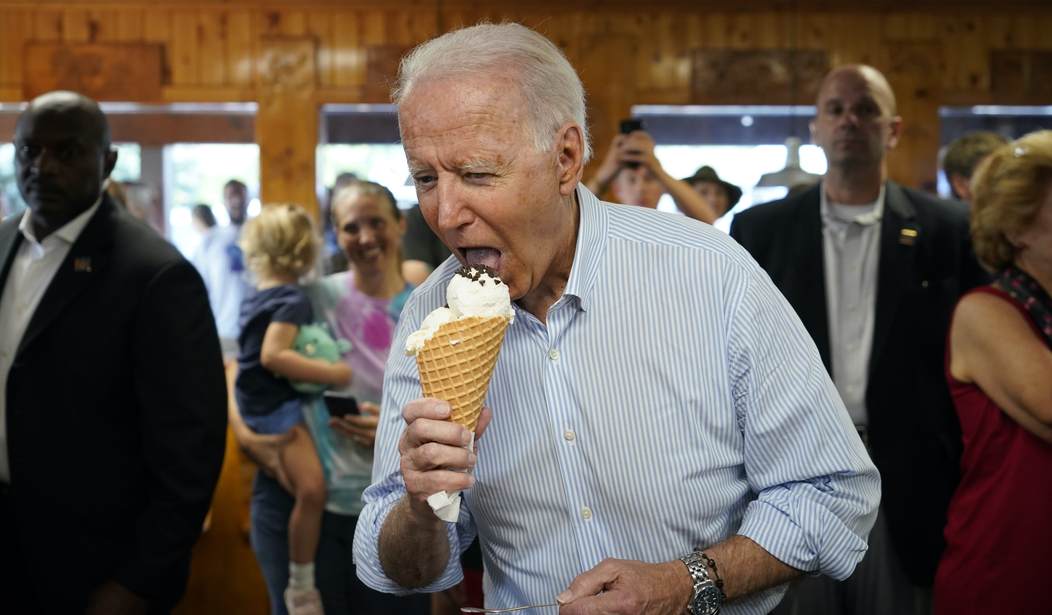From our "Is there anything that isn't affected by climate change?" file comes a study published in Nature about how warmer weather is making us drink more cold, sugary sodas and indulge in cold desserts like ice cream.
How much more? The American Sugar Alliance is proud to tell us that in the 15 years covered by the study (June, July, and August from 2004 to 2019), Americans consumed more than 100 million pounds of added sugar (358 million kilograms) in a year, compared to 15 years earlier.
That's a lot of triple chocolate sundaes.
The study's conclusion is that there's absolutely, positively, nothing else on this planet or any other that could cause this spike in ice cream and soda sales besides... (wait for it)... climate change!
“People are not aware of this issue,” said Pengfei Liu, an environmental economist at the University of Rhode Island, who co-authored the study. I expect that people are not only not aware of this but also might wonder how it's related to the changing climate, rather than ordinary summer heat being assuaged by the fast-growing number of sugary confections available to Americans. We have demonstrated an insatiable appetite for sweet things long before climate change was a glint in the beady little eyes of Greta Thunberg.
"Changes in climate affect the food industry in various ways — crop yields are dependent on temperature and rain, livestock needs to be kept healthy to keep prices low," says Pengfei Liu.
Weather changes also affect all of that, so what's the point?
“Climate change is shaping what you eat and how you eat and that might have a bad effect on your health,” said study co-author Duo Chan, a climate scientist at the University of Southampton.
“People tend to take in more sweetened beverages as the temperature is getting higher and higher,” Chan said. “Obviously under a warming climate that would cause you to drink more or take in more sugar. And that is going to be a severe problem when it comes to health.”
Also, "obviously," during hot summer months, it's completely understandable that people would seek delicious and refreshing relief from sodas and ice cream. "Between 2004 and 2019, the world warmed by approximately 0.2°C to 0.3°C," according to a report by the National Oceanographic and Atmospheric Administration (NOAA).
So that infinitesimally small temperature change led us to consume a hundred million more pounds of sugar a year?
Phooey.
By tracking weather conditions and consumer purchases, the researchers found that sugar consumption rose as temperatures moved between 54 and 86 degrees Fahrenheit (about 12 and 30 Celsius). And the warmer it got, the more sugar was consumed, until appetites began to lessen when it grew warmer than 86 degrees.
The daily difference from higher temperatures doesn’t amount to even a single candy bar for the average person. But it adds up over time and has a big effect, said University of California San Francisco endocrinology professor Dr. Robert Lustig, a specialist in pediatrics and obesity who wasn’t part of the study.
They didn't factor in the increased supply of confections or sugary soda into their calculations. More products, more sugar, increased consumption — surely that should have been a significant part of the equation.
It would have been if the scientists had been looking to be as accurate as possible instead of trying to "prove" a preordained climate change hypothesis.
The effect appeared to be most pronounced among Americans with low income and educational levels, as well as among those in milder regions unacclimated to the heat. While the amount of extra sugar consumed is small — less than a gram per degree — the cumulative effect of all that added sugar due to rising temperatures may end up increasing the overall risk of obesity, diabetes, heart disease and cancer.
Pan He, a study co-author originally from China, said much of the research team has witnessed Americans’ big appetites first hand.
“We see how people are so into these sweetened beverages,” said He, who is an environmental social scientist at Cardiff University in Wales. “We are curious about whether that would make a difference” during warmer months.
So throw in a little anti-American bias as well. I guess they wanted to make sure they'd get plenty of positive press when pointing out Americans' insatiable sweet tooth.










